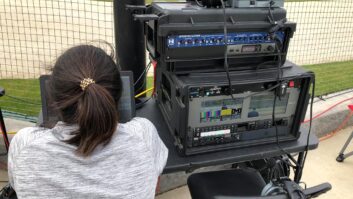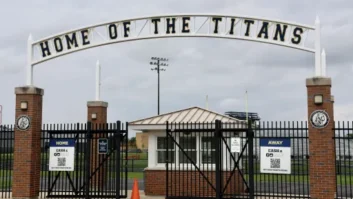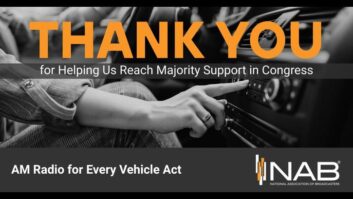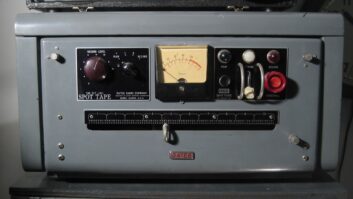Will Payne has the mannerisms you would expect from an Oklahoman raised in the 1970s: plenty of southern charm mixed with some Midwest grit. He’s part tornado chaser and part youth soccer coach, a graduate of Southeastern Oklahoma State University and a proud dad. And he is a third-generation radio man.
Payne’s family broadcasting tree is a tall one. Paynes have operated radio stations in the area since the 1950s, beginning with an AM in Cushing, Okla.
His father, the late Bill Payne, launched one of the first FM stations in the state, in his home in Edmond, and was inducted into the Country Radio Hall of Fame. Grandfather William Howard Payne founded the family broadcasting business and was an attorney who represented tribal nations in their efforts to gain reparations.
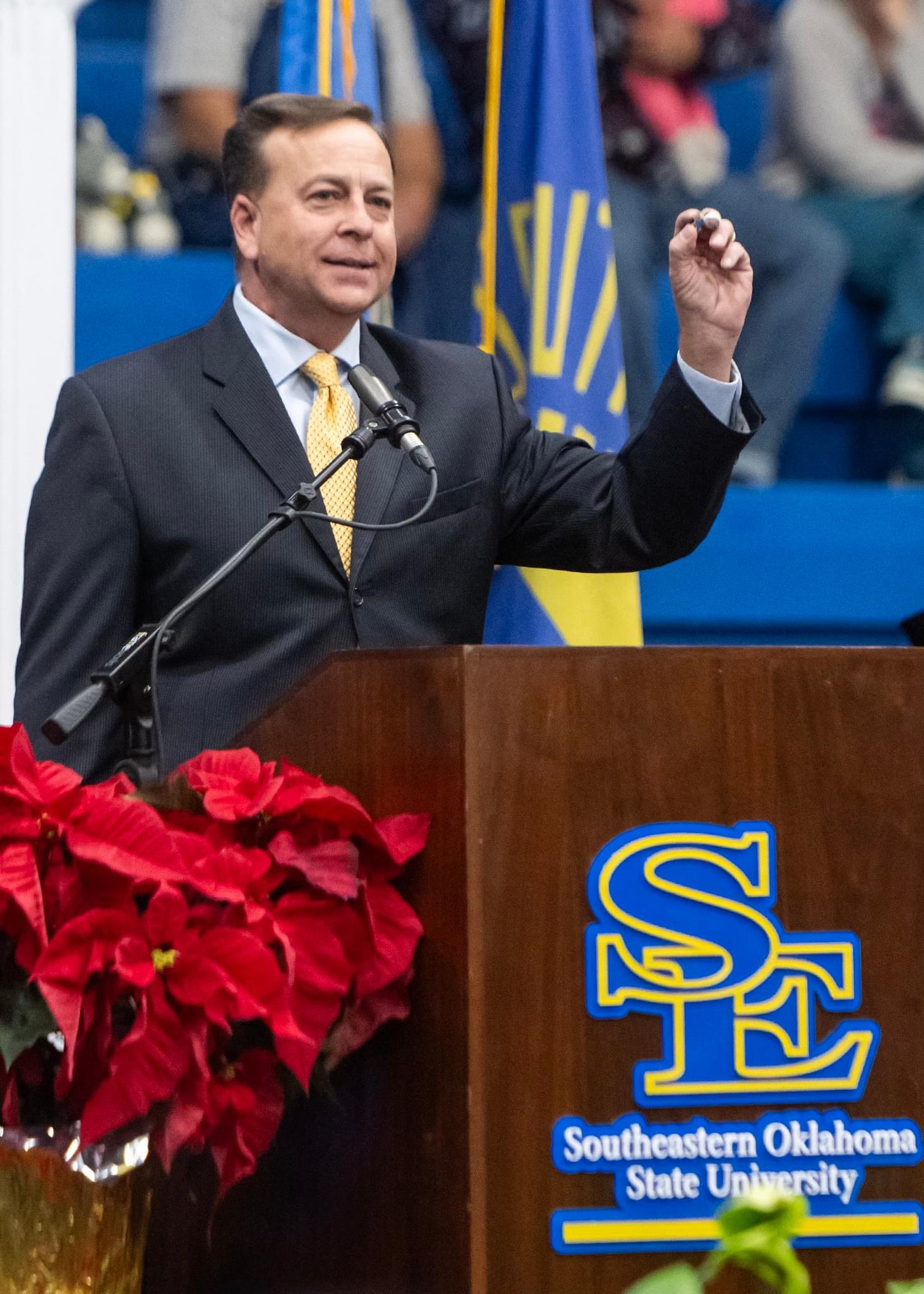
In fact, the listening area of Payne’s radio stations cover much of the Choctaw, Cherokee and Chickasaw Nations of eastern Oklahoma.
Will Payne has built on the success of his father and grandfather. Payne Media Group LLC, of which he is president, operates seven FMs that serve southeastern Oklahoma and northeast Texas, while Payne’s mother, Gail, still owns the stations her late husband held across the region.
The 50-year-old Payne also holds a seat on the radio board of the National Association of Broadcasters and is in his second stint as chairman of the Oklahoma Association of Broadcasters. And he hosts a morning radio show with Barry Diamond on a regional network of four FM stations.
Radio World talked with Payne about the family’s broadcast legacy, challenges faced by broadcasters in small markets, and his life as a radio ambassador.
Radio World: You’re not kidding when you say radio is literally in your blood. What is it like to be raised in a radio family?
Will Payne: It’s all I know. There are challenges, but in our family it’s a lifestyle. On Christmas mornings, before we had all this fancy technology, we were the ones working so the staff could have the day off. I remember taking road trips with my dad in the station van out to transmitter sites that needed work. We would chase tornados, too.
My dad never pushed us in the direction of radio, but he allowed us to be hands-on if we wished. I was a music programmer by 17 and a GM by 21. In 2006, I got my first construction permit and built my first radio station, so there were definitely great opportunities as well.
RW: Sounds like it was a great learning environment.
Payne: We were able to be a part of every facet of the radio business. My dad was that way. He was on air, programming, engineering and management. I’m that way myself, and that’s something great about being a part of a radio family.
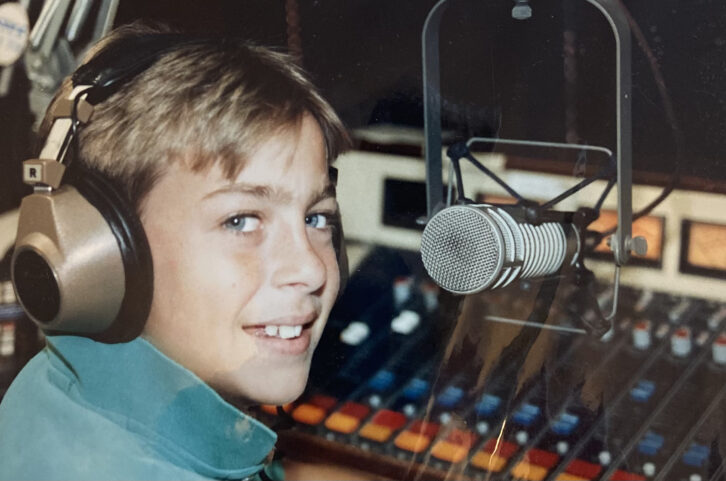
RW: Do you handle your own engineering work, then?
Payne: I handle the day-to-day and routine maintenance and any tech support. Richard Hardy has built all of my stations; I call on him when we have major or catastrophic issues. He comes in from Tulsa 2-1/2 hours away. Richard used to pick me up at daycare and bring me to my father’s station in Tulsa. He has worked for the family since the 1980s.
RW: What challenges do you face as a small-market radio broadcaster?
Payne: Same as the big groups. We compete now with not only other radio stations, but goliaths like Facebook, Google and YouTube. And social media. There is more competition than ever before.
We tell our clients we are in the media business, so we’ve acknowledged that we are in the media business, too, by live streaming events, video ads, pre-roll banners and website ads. We really make sure that when we talk to clients, we let them know we are in the media business, not just AM or FM or HD Radio business.
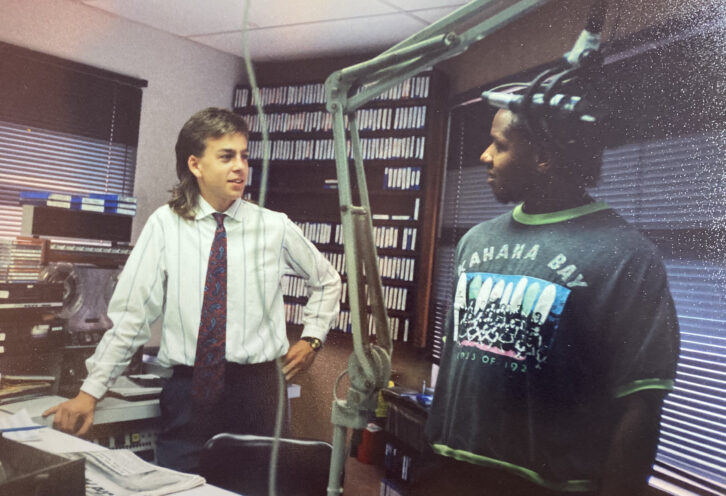
RW: You mention HD Radio. Is it the cost of the initial investment that has kept more small radio broadcasters from adopting it?
Payne: I think that was the case 10 years ago, but now I think Xperi has done a good job of offering payment plans to do it. I’m hoping more small broadcasters adopt.
And the transmitters are much more reliable now. When we went HD, I went from an old tube-type transmitter to a Nautel solid-state. Now I don’t need to maintain that new transmitter like I used to. I feel with the electricity I’m saving, along with the cost I’m saving in tubes and engineering, that I can afford HD.
RW: You call yourself an ambassador for radio. How so?
Payne: I don’t think we do enough to promote our wins. We are diversifying as an industry and we need to promote that more than ever. I tell other broadcasters to get out there and tell their story because it’s a great story to tell.
RW: Can you expand on that? What aspects of radio, or of their own stories, would you like other broadcasters to be more vocal about?
Payne: Rural radio moves the needle and the cash register every day. And it is a lifeline. In a time of need, radio is there. We spring into action, we report, we raise money. We need to promote ourselves.
Tell the story of how you did it. What you do. Use any means necessary to recap and be vocal on how to make a difference. Show numbers, show man-hours dedicated. Yes! We create transactions every day with local businesses. That’s an amazing story. We need to share it with everyone in the community.
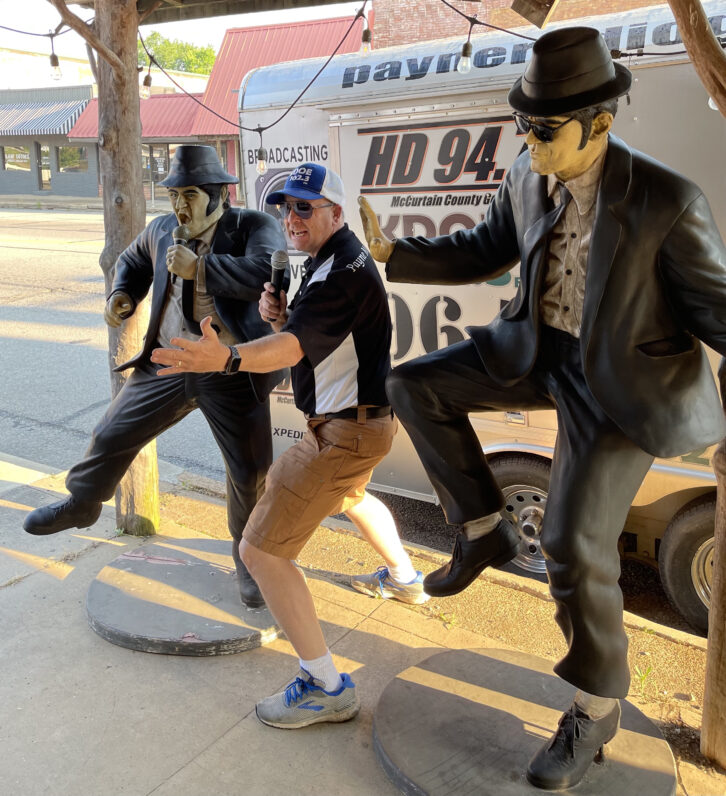
RW: What’s it like serving on the NAB Radio Board as owner of a small-market group?
Payne: There are a few of us, I’m not alone. I’m not sure that I bring a unique perspective. We are similar in a lot of ways.
One of the things I can say is this. In a small market we do it all. From engineering, to sales, to programming, we have a familiarity with it. Those who work for larger groups might have higher proficiency in one area or another, so in that sense we can come up with ideas and find solutions for the whole of radio.
RW: What are your thoughts on AI and what it means for radio?
Payne: As a small-market guy, we’ll be able to offer goods and service more quickly. The other part of it is that AI offers a way to check your work.
If I can get bullet points from a client, I can throw it into CreativeReady SpecMate and ChatGPT to get the beginnings of a script. Usually it’s pretty good already, but then we customize it a bit to the client. This is especially helpful to young AEs who can take spec spots to clients.
That’s just on the creative copy side. We are not using any AI on the audio creative side, but I’m very curious and continue to look at it. Imagine if you could choose from some good voices and create the commercial. You then have a pretty good commercial to start with. Better than you would without using AI. I think we will pick something like that up eventually.
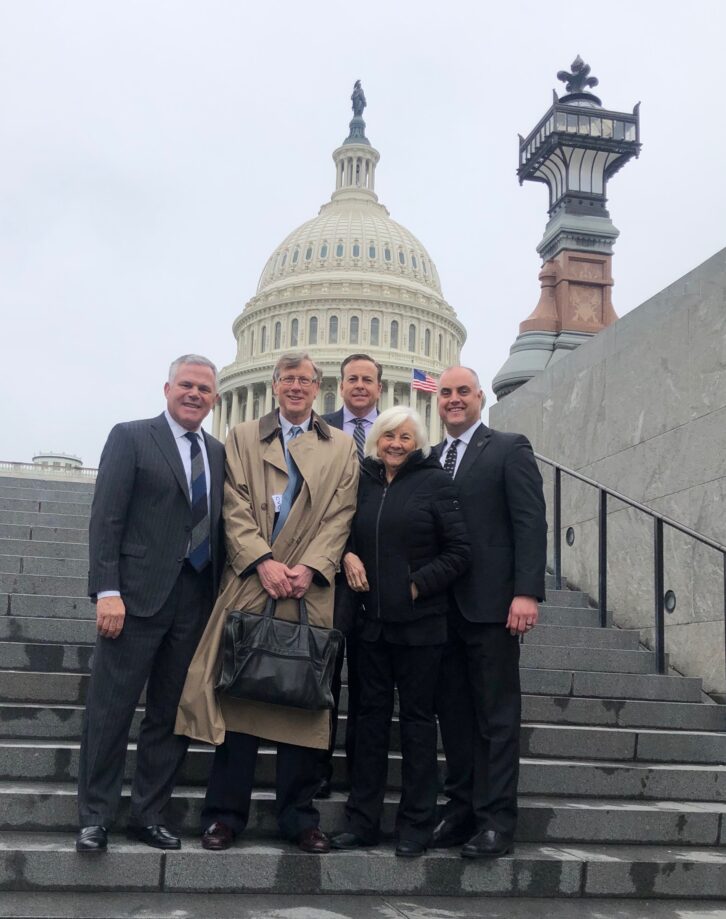
RW: What do you think of the FCC and the current climate of regulation?
Payne: First, props to the NAB for getting our regulatory fees reduced. They went in and were able to show the FCC how to allocate the fees more fairly.
In our market, we are the only media paying fees to the FCC. It puts us at a disadvantage. I will say this, we have direct competitors that are not regulated and operate as they please. That’s to their advantage.
RW: The commission recently declined to remove or raise the subcaps that limit how many radio stations one company can own in a market on each band. What’s your opinion of that?
Payne: I am in favor of helping local radio owners in the rural market. I think the strong need to be able to get stronger. Clearly the competition has changed. Many owners are ready to sell due to age or finances. Broadcasters need flexibility.
RW: AM radio still means a lot to you and your family?
Payne: Absolutely, I remain a fan of AM. Our first station was an AM station and my mother still owns an AM station. There are still standalone AMs, without the help of translators, doing great things for their community in this country.
RW: You’re considered a pioneer in video streaming of high school sports in Oklahoma. How did that come about?
Payne: We started streaming high school sports around 2011. My heart is in radio, but if you’re not streaming high school sports and you only rely on the radio broadcast, you are doing your listeners a disservice. The public is demanding that we stream local sports.
We worked together with the Oklahoma Association of Broadcasters to get a bill passed into law in 2021 that helps radio stations secure the rights to stream the football and basketball games of their local high schools. The law really levels the playing field and eliminates out-of-state companies from enforcing exclusive media rights deals that deny access.
Radio broadcasters doing broadcasts of local sports really need to focus on streaming the games and take advantage of the revenue possibilities. It’s a real growth area for us.
RW: Are any of your children following in your radio footsteps?
Payne: That’s to be determined. Jarred, 28, is working in Kansas City. McKinley, 23, will finish occupational therapy school in May at Oklahoma University. Hayes, 13, is very active with live streaming broadcasts of high school sports.
RW: You say you can sometimes be found on the prowl in your 1974 canary yellow De Tomaso Pantera. Are you a car guy?
Payne: That’s what I do in my free time. I love working on old cars. I’d been chasing that very Pantera for nearly 25 years and finally caught it. It was sitting behind an old barn with no engine when I found it.
